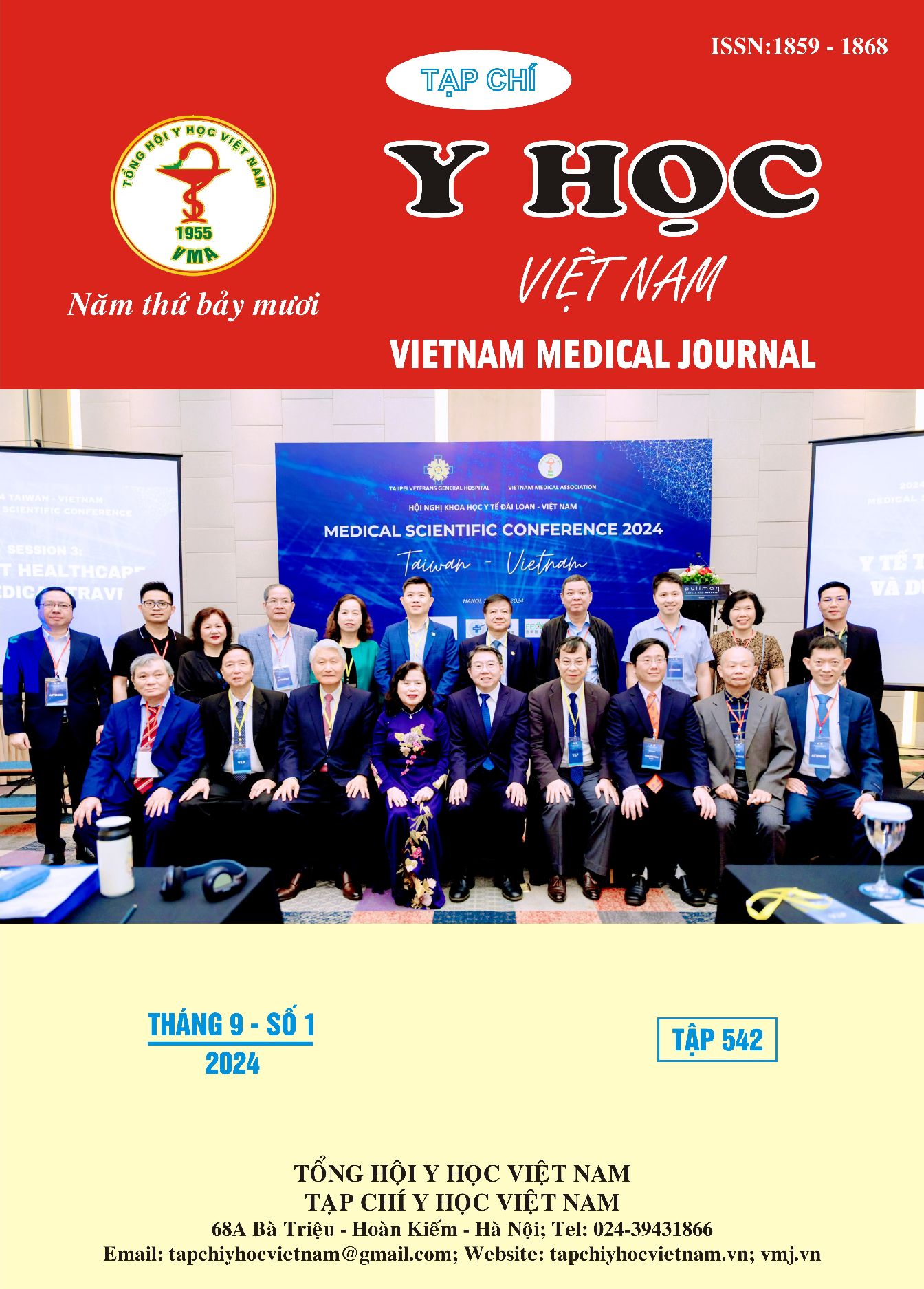A SYSTEMATIC REVIEW OF THE TREATMENT OUTCOMES FOR ALLERGIC RHINITIS USING SPECIFIC IMMUNOTHERAPY
Main Article Content
Abstract
Background: Allergic rhinitis (AR) affects approximately 400 million people worldwide and is one of the most common chronic diseases globally. Treatment of AR with symptom-relieving drugs only affects the chemical mediators that cause allergies, AR may reappear if the drug is stopped. Allergen-specific immunotherapy (AIT) has emerged as a potential alternative treatment method to treat AR. Objectives: Overview of recent studies on effectiveness after treatment as well as complications when using AIT. Subjects and methods: Summary of all clinical studies on AR and treatment effectiveness with AIT, from 2010 to 2024, on online databases: Pubmed, Science Direct, Cochrane, Wiley, University of Medicine and Pharmacy libraries and Medical journals in Vietnam. Results: A total of 2221 studies were searched, including five AIT methods (SCIT, SLIT, ILIT, ITIT and ICLIT). Ultimately, 34 eligible studies were included in the analysis. Many clinical criteria were evaluated such as individual symptom scores, total nasal and medication symptom score, total nasal symptom score, Quality of Life Questionnaire and VAS scores, and these scores were significantly reduced in both adults. and children. The ratio of specific IgE to total IgE (sIgE/tIgE) is considered a prognostic biomarker for AIT treatment. The Th2 cell interleukins that characterize of AR are significantly reduced after AIT treatment. Conclusions: AIT is a potential immunotherapy treatment for patients with allergic rhinitis
Article Details
References
2. Kouzegaran S, Zamani MA, Faridhosseini R, et al. Immunotherapy in Allergic Rhinitis: It’s Effect on the Immune System and Clinical Symptoms. Open Access Maced J Med Sci. 2018;6(7):1248-1252.
3. Kim SH, Shin, SY, Lee, KH, Kim, SW, Cho J. Long-term effects of specific allergen immunotherapy against house dust mites in polysensitized patients with allergic rhinitis. Allergy Asthma Immunol Res. 2014;6(6):535‐540.
4. Zhang Y zu, Luo J, Wang Z han, Wang J. Efficacy and safety of sublingual dust mite drops in children with mono- or polysensitized allergic rhinitis. Am J Otolaryngol. 2019;40(5):755-760.
5. Chen H, Chen Y, Lin B, et al. Efficacy and adherence of sublingual immunotherapy in patients aged 60 to 75 years old with house dust mite-induced allergic rhinitis. Am J Otolaryngol. 2020;41(4):102538.
6. Fujimura T, Yonekura S, Horiguchi S, et al. Increase of regulatory T cells and the ratio of specific IgE to total IgE are candidates for response monitoring or prognostic biomarkers in 2-year sublingual immunotherapy (SLIT) for Japanese cedar pollinosis. Clin Immunol. 2011;139(1):65-74.
7. Boghdadi G, Marei A, Ali A, Lotfy G, Abdulfattah M, Sorour S. Immunological markers in allergic rhinitis patients treated with date palm immunotherapy. Inflamm Res Off J Eur Histamine Res Soc Al. 2012;61(7):719-724.


